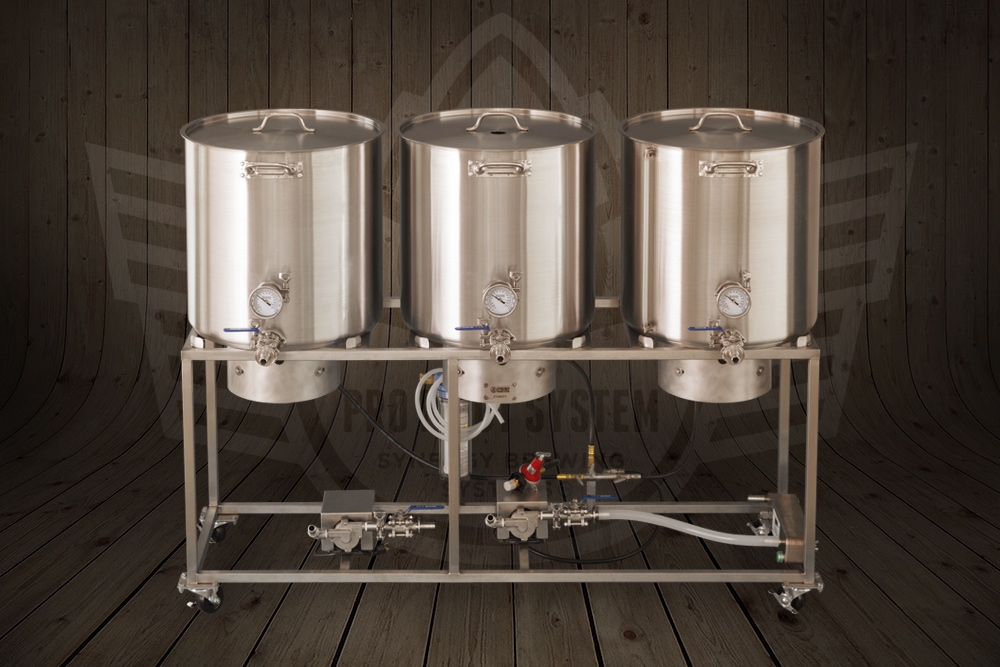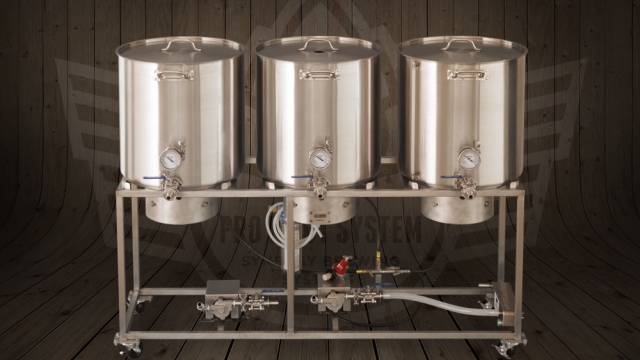Brewing Brilliance: Unleashing the Power of Brewery Equipment
Welcome to the world of brewery equipment, where passion, precision, and a touch of magic come together to create the finest brews known to humankind. Whether you’re a seasoned beer enthusiast or a curious soul eager to explore the art of brewing, understanding the ins and outs of brewery equipment is essential to your craft. In this comprehensive guide, we’ll delve into the realm of brewery equipment, unraveling its mysteries and uncovering the secrets behind producing exceptional beer.
Brewery equipment is the backbone of any brewing operation, serving as the catalyst that transforms grains, hops, water, and yeast into liquid gold. It encompasses a wide range of tools and machinery specifically designed to facilitate the brewing process, ensuring consistency, efficiency, and quality at every step.
From the small-scale charm of microbrewery equipment to the impressive setups of large commercial breweries, the world of brewery equipment caters to brewers with diverse ambitions and needs. Each piece of equipment plays a vital role, from mash tuns that extract fermentable sugars to fermentation vessels that house the magical transformation of wort into beer.
In the following pages, we will take you on a journey through the various components of brewery equipment, exploring their functions, benefits, and considerations. Whether you’re interested in the art of home brewing or seeking guidance on setting up your own microbrewery, this guide is your key to unlocking the power and potential of brewery equipment. So, grab a cold one, settle in, and let’s embark on this enlightening exploration of the world of brewery equipment.
Understanding Brewery Equipment
Brewery equipment plays a pivotal role in the process of beer production. From large-scale commercial breweries to small microbreweries, the right equipment is essential for producing high-quality, flavorful brews. So, let’s dive into the world of brewery equipment and explore what it entails.
At its core, brewery equipment refers to the machinery and tools used in the entire beer production process. This equipment ranges from brewhouses, fermenters, and bright tanks, to keg washers, chillers, and filtration systems. Each piece of equipment serves a specific purpose in the brewing journey, ensuring the consistent and efficient production of delicious beers.
For microbreweries, the equipment setup typically includes smaller-scale systems that cater to their specific brewing needs. These setups are designed to produce limited quantities of beer while maintaining the desired taste and quality. Microbrewery equipment often includes compact brewhouses, conical fermenters, and specialized kegging systems.
Beer brewing equipment is designed to withstand the challenging conditions of the brewing process. It is constructed from durable materials such as stainless steel, which not only improves longevity but also prevents any undesirable interactions with the beer. Modern brewery equipment is also equipped with advanced automation and control systems, allowing brewers to streamline their operations and maintain consistent quality.
Understanding the different components of brewery equipment and how they work together is crucial for aspiring brewers and industry enthusiasts alike. Whether you’re starting your own microbrewery or simply interested in the art of beer-making, having a solid grasp of brewery equipment is essential for venturing into this fascinating world.
Key Components of Brewery Equipment
When it comes to brewery equipment, there are several key components that play crucial roles in the beer brewing process. Understanding these components is essential for anyone looking to unleash the power of brewery equipment. In this section, we will explore three important elements that make up brewery equipment: mash tuns, fermenters, and bright tanks.
Mash tuns are a fundamental part of brewery equipment, as they are used in the mashing process. These vessels are designed to mix crushed malt grains with hot water, converting starches into fermentable sugars. With precise temperature control and efficient mixing, mash tuns ensure the desired enzymatic reactions occur, leading to the production of high-quality wort – the liquid extracted from the mashing process.
Fermenters are another crucial component in brewery equipment, responsible for the fermentation stage of beer production. These vessels provide an environment conducive for yeast to convert sugars into alcohol and carbon dioxide. Depending on the scale of the operation, breweries may utilize various types of fermenters, such as open fermenters or closed conical fermenters, to achieve specific flavor profiles and maintain cleanliness throughout the process.

Bright tanks, also known as serving tanks or maturation tanks, are the final destination for beer before it is packaged for consumption. These tanks aid in the clarification and carbonation of the beer, ensuring that it reaches its optimum taste and appearance. Bright tanks are designed to store beer under controlled pressure, allowing any remaining sediment or impurities to settle, while carbonation levels are carefully adjusted to achieve the desired effervescence. From here, the beer can be transferred to kegs, bottles, or cans, ready to be enjoyed by beer enthusiasts.
Understanding the key components of brewery equipment – mash tuns, fermenters, and bright tanks – provides a solid foundation for those looking to delve into the world of brewing brilliance. With these essential elements in place, brewers can strive to achieve consistency, quality, and creativity in their beer production, bringing joy to beer lovers everywhere.
Choosing the Right Brewery Equipment
When it comes to setting up a brewery, selecting the right equipment is crucial for the success of your operation. Brewery equipment refers to the various tools and machinery used in the beer production process. It ranges from large-scale industrial systems to smaller microbrewery setups. In this guide, we will explore the factors to consider when choosing the perfect brewery equipment for your needs.
First and foremost, it’s important to determine the scale of your brewery. Are you planning on opening a large-scale commercial brewery or a smaller microbrewery? The size of your operation will directly influence the type and capacity of the equipment you require. Industrial breweries will need larger brewhouses, fermenters, and storage tanks, while microbreweries can get by with smaller, more compact systems.
Another factor to consider is the production volume you aim to achieve. Depending on your business goals, you may need equipment that can produce beer in large quantities or a smaller setup for limited batch production. It’s essential to assess your target market and estimate the demand to ensure your equipment can meet those requirements.
Lastly, budget considerations play a significant role in choosing the right brewery equipment. Costs can vary greatly depending on the size, complexity, and brand of the equipment. It’s crucial to determine your budget constraints and explore different options available in the market. Consider balancing quality and durability with affordability to ensure a wise investment.
By carefully evaluating the size of your brewery, production volume, and budget, you can make an informed decision when selecting the right brewery equipment. Choose equipment that suits your specific needs and will enable you to brew brilliant beers consistently.





